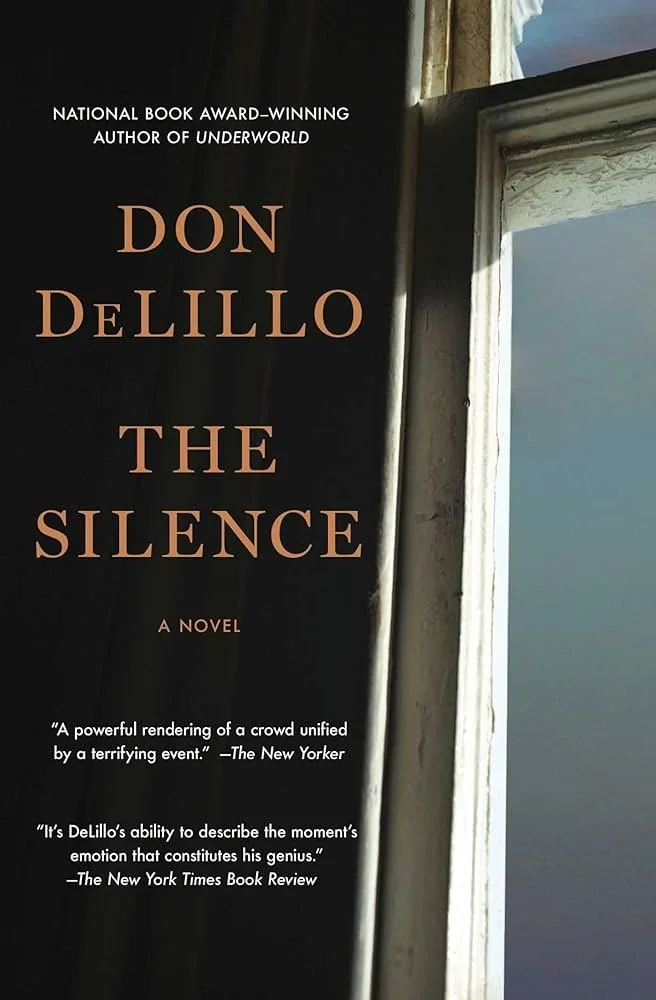Book Review : Steve Erickson - Shadowbahn (2017)
* Follow me on: Facebook - Twitter - Instagram *
We largely understand the world in binaries. For example, if someone doesn’t smile we’ll assume this person is either sad or angry. If a movie doesn’t feature space ships or flying cars in the first 5 minutes, we’ll assume it’s not science fiction. That sort of thinking. It’s not dumb or anything, because the world is built on this sort of dialectic thinking. Certain works of arts tend to elude this understanding by their very nature. Works of art like Steve Erickson’s novel Shadowbahn.
Summarizing this novel is quite complicated because it’s not really about what it claims to be about. The back cover blurb features the World Trade Center mysteriously reappearing in South Dakota almost twenty years after being destroyed, Elvis Presley’s stillborn twin brother Jesse, a brother and a sister I wasn’t sure I should care about and other wild ideas. In a way, Shadowbahn is about all these things. But they’re also very accessory to what this book is really about.
It’s about music, collective memory and the soul America. Somewhat.
I’m sorry to announce that Damon Lindelof is not going to provide a lousy explanation for the reappearance of the twin towers, twenty or thirty pages from the end of Shadownbahn. It’s not that kind of novel. The towers are basically a portal to an alternate reality (I’m sure you’ve had a hunch already, Elvis’ twin brother and all) and shit is happening within its “hush vortex”, some kind of force field radiating music outwards. I told you this novel didn’t fit any box, did I?
What is happening exactly near these towers? Well, John F. Kennedy rides around in a wheelchair. John Lennon is resurrected. Sun Records becomes Luna Recordings. Some type of alternate cultural history is unraveling. What the fuck, right? Well, my best guess is that Shadownbahn is a monument to collective memory. That forgotten or lost pieces of American culture live forever inside the mind of people who are willing to remember them.
It would be why the twin towers are reappearing, pregnant with possibilities that were once lost. That is why Jesse Presley wades in an out of existence. He clings to his brother’s legacy in a reality he never experienced. It would also be why John Lennon walks away from celebrity using his second go at life. Shadowbahn is sometimes really confusing, but I believe it’s about how collective memory shapes America for better or worse.
Lost highway
I’m not going to lie. I completely lost the highway (literally and figuratively) a couple times while reading Shadowbanhn. Especially when reading the Parker and Zema chapters. These two are really the protagonists. They are the ones riding (by accident) the titular shadowbahn that leads to the heart of America, while listening to a playlist of wide-ranging American music. It is very obscure to me what is happening to them or how it ties up to the other part.
But here’s the collective memory theme again: they are the son and daughter of a forgotten novelist suddenly gaining access to a forgotten America. As living beings, their passage seem to reignite layers of reality and entire universes of possibilities. I might be wrong about all that, but I don’t think I am. Shadowbahn is a unifying trip down collective memory for a country that is too often at war with itself. and it conjures the past in order to prove it.
*
But is it good? Well, it’s one of these novels you either vibe with or don’t, like a seventeen minutes psychedelic rock song. I liked it for being radically different and really never crystallizing into something precise or easy to understand. It’s chronically frustrating and at times full of itself (some of these sentences eat themselves and stop making sense halfway through). But it’s with novels like that you create new ways to think about the world.
Is Shadowbahn the hipster, underground literary triumph it’s made out to be? I don’t think so. Someone is bound use these ideas in a more exciting and groundbreaking way, but Steve Erickson had them first and it took courage to thrown them out into this kaleidoscopic prism the way he did. It’s one of these books you grow somewhat of a good natured adversarial relationship to. A puzzle that doesn’t teach you anything, but points in a direction you never looked.






